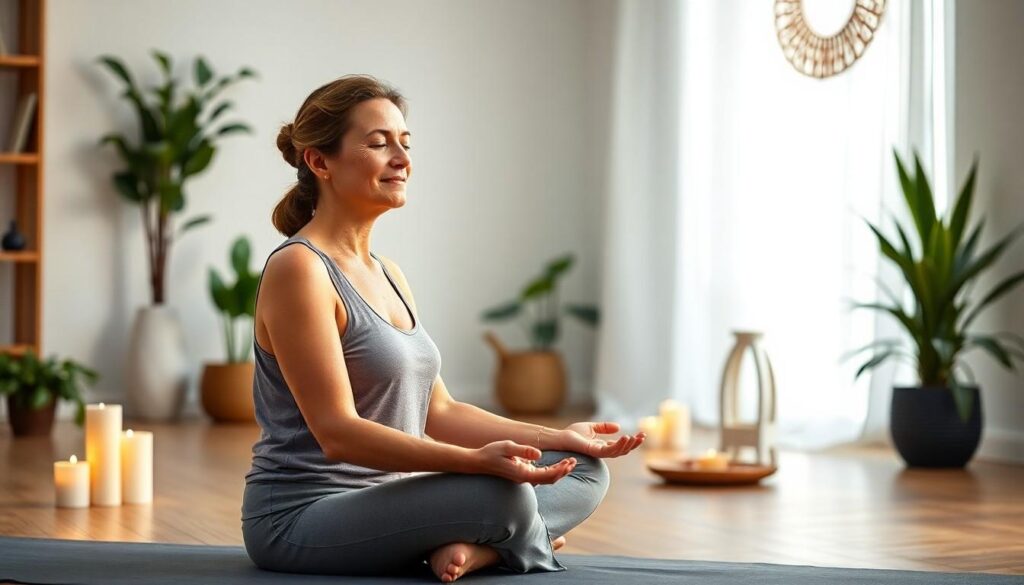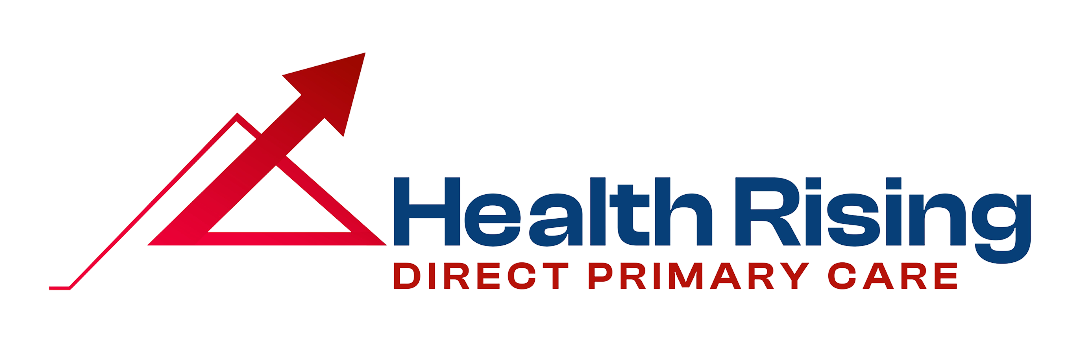When most people think of the word “exercise,” a few images come to mind: sweating profusely on a treadmill, struggling through a boot camp class, or waking up sore after a failed attempt to get back in shape. If those thoughts make you cringe, you’re not alone. But here at Health Rising DPC, we have a different message: exercise is non-negotiable even if you hate it.
That might sound harsh, but it comes from a place of truth and care. Movement is not punishment. It’s not a task to check off. It is one of the most powerful forms of medicine we have access to, and the good news is that you don’t need to love it to benefit from it. You just need to do it, consistently, in a way that works for your life.
Reframing Exercise: It’s Not What You Think
Many people view exercise as something extreme, either you’re training for a marathon or it’s not worth doing. But this mindset does more harm than good. You don’t need to suffer to move your body. You need to start small and build consistency.
Let’s Ditch the Myths
| Myth | Reality |
| You have to exercise for an hour a day | Small amounts of movement add up |
| You need a gym membership | Movement can happen anywhere |
| You have to enjoy it | You just need to commit |
| Pain is part of the process | Movement should energize, not deplete |
The Non-Negotiables of Health
In our Health Rising pathway, we focus on foundational habits that move the needle on your health over time. One of those non-negotiables is physical activity. Not because we want you to suffer, but because your body thrives when you move it.
Here’s What Regular Movement Supports:
- Cardiovascular health
- Blood sugar regulation
- Improved sleep quality
- Hormone balance
- Joint and muscle resilience
- Emotional regulation
- Brain health
- Longevity and independence
That list isn’t about “gains” or “six-pack abs.” It’s about living longer and better, with more freedom in your body and fewer medications in your future.
The Science Behind Movement and Health
Even low-intensity, moderate activity can create powerful ripple effects in your body. Your heart becomes more efficient. Your blood vessels expand and adapt. Your brain grows new neurons. Your insulin sensitivity improves. Your cortisol levels stabilize.
When movement becomes a daily habit, the changes are profound, not just physically, but emotionally. People often report less anxiety, more confidence, and deeper sleep. And these benefits don’t require you to love the process. They only require participation.
Why We Hate Exercise (And How to Get Past It)
If you’re someone who has never enjoyed exercise, you might believe it’s just not for you. But dislike is often a symptom of past experiences, not a fixed trait.
Common Reasons People Avoid Movement:
- Past gym class trauma or embarrassment
- All-or-nothing thinking (“If I can’t go hard, I won’t do it”)
- Chronic pain or fatigue
- Boredom or lack of variety
- Unrealistic expectations
- Shame around body image
The good news is that none of these obstacles are permanent. Movement is like medicine, you don’t have to enjoy the taste to benefit from the effects.

Making Movement Work for You
The key to sustainable activity is personalization. Forget the influencer routines and celebrity workouts. Your movement should match your goals, schedule, and preferences.
Movement Menu: Choose What Fits Your Life
| Type of Movement | Good For | Examples |
| Low-Intensity | Stress relief, joint mobility | Walking, stretching, yoga |
| Moderate-Intensity | Heart health, metabolism | Hiking, brisk walking, biking |
| High-Intensity | Strength, endurance | Interval training, strength workouts |
| Functional Movement | Everyday life tasks | Bodyweight exercises, resistance training |
Even if you only have ten minutes, those ten minutes matter. And if you can only do chair exercises or stretch in bed today, that still counts.
The Emotional Side of Exercise
We often separate physical and emotional health, but movement is a bridge between them. When you move, you access a different emotional state. Endorphins get released. Stress hormones drop. You gain a sense of accomplishment, even on hard days.
Emotional Benefits of Movement:
- Increased mood stability
- Decreased anxiety and depression
- Boosted self-esteem
- Stronger sense of identity and capability
Movement is one of the few interventions that supports both mind and body at once. That makes it too valuable to ignore.
The DPC Perspective: Why We Emphasize Movement
At Health Rising DPC, our model of care is different. We don’t rely on five-minute appointments and prescription pads. We look at your lifestyle. Your stress. Your movement. Your goals.
That’s why we emphasize exercise, even if you hate it. Not as a punishment, but as a tool for reclaiming control over your health. In our visits, we ask about movement not to judge, but to support you. We help you set realistic goals. We walk with you through setbacks. We remind you that progress matters more than perfection.
Finding Joy (Even if You Never Love It)
Not everyone will fall in love with exercise. That’s okay. The goal isn’t to become a fitness fanatic. It’s to find a type of movement you can stick with.
Ways to Make Movement More Enjoyable:
- Listen to music or podcasts
- Move outdoors
- Invite a friend
- Keep a progress journal
- Join a supportive class or group
- Track how you feel afterward, not just during
Sometimes joy shows up after the habit is in place. The first few weeks might feel clunky. But your body adapts. Your energy shifts. And slowly, what was once a chore becomes a form of self-care.
Building Consistency: The Small Wins Approach
You don’t need willpower. You need a system. And you need to stack small wins.
Weekly Movement Template:
| Day | Goal | Activity |
| Monday | 15 minutes | Stretching or light walk |
| Tuesday | 20 minutes | Bodyweight workout or yoga |
| Wednesday | 10 minutes | Walk break during lunch |
| Thursday | 20 minutes | Home circuit or dance video |
| Friday | 15 minutes | Light movement or breathing exercises |
| Saturday | 30 minutes | Hike, bike, or active chore |
| Sunday | 15 minutes | Rest or gentle mobility |
This is not about intensity. It’s about routine. When movement becomes as normal as brushing your teeth, it no longer feels like a burden.
When You Miss a Day (or a Week)
You will fall off track. Everyone does. The difference between those who benefit from exercise and those who don’t isn’t perfection. It’s recommitment.
Tips for Getting Back On Track:
- Don’t wait until Monday
- Do something small today
- Text a friend to join you
- Revisit your “why”
- Forgive yourself quickly
At Health Rising DPC, we don’t expect perfection from our members. We expect humanity. And we provide the support and coaching to help you get back on track every time.
Your Health, Your Move

The truth is simple: exercise is non-negotiable even if you hate it. But the path doesn’t need to be painful or punishing. Movement can be gentle. It can be adapted. It can be meaningful, even if it never becomes your favorite part of the day.
Your body is designed to move. And when you honor that design, everything else improves. Your sleep. Your stress. Your energy. Your longevity.
We’re not here to push you into workouts you dread. We’re here to help you discover what movement means in your life and why it matters. If you need help finding your starting point, reach out. At Health Rising DPC, your health journey is personal, and movement is part of the map.
FAQs About Why Exercise is Non-Negotiable Even If You Hate It
Why is exercise non-negotiable even if I hate it?
Because regular movement supports nearly every system in your body, from brain health to hormone balance, even if you don’t enjoy it. The benefits occur whether you love exercise or not.
What if I physically can’t do intense workouts?
You don’t need intensity. Low-impact, gentle movements still count. Walking, stretching, and even chair exercises make a difference when done consistently.
How can I stay motivated if I hate working out?
Focus on the outcomes, not the act itself. Improved mood, better sleep, and more energy are powerful motivators. Small wins build momentum.
Can I get the same benefits from daily chores or walking?
Yes, daily movement adds up. Walking, gardening, and cleaning all support your health if done with consistency and intention.
How often should I move my body?
Aim for some form of movement most days of the week. It doesn’t need to be long or intense, just regular.
What if I miss a week or more?
Start again gently. The key is returning to the habit without guilt. Every day is a chance to recommit.
Do I need to join a gym to benefit from exercise?
Absolutely not. Movement can happen anywhere, at home, outside, or in your living room. The setting matters less than the consistency.
How does Health Rising DPC support my exercise journey?
We take a whole-person approach. That includes personalized coaching, goal-setting, and helping you create a sustainable movement routine that fits your life.











